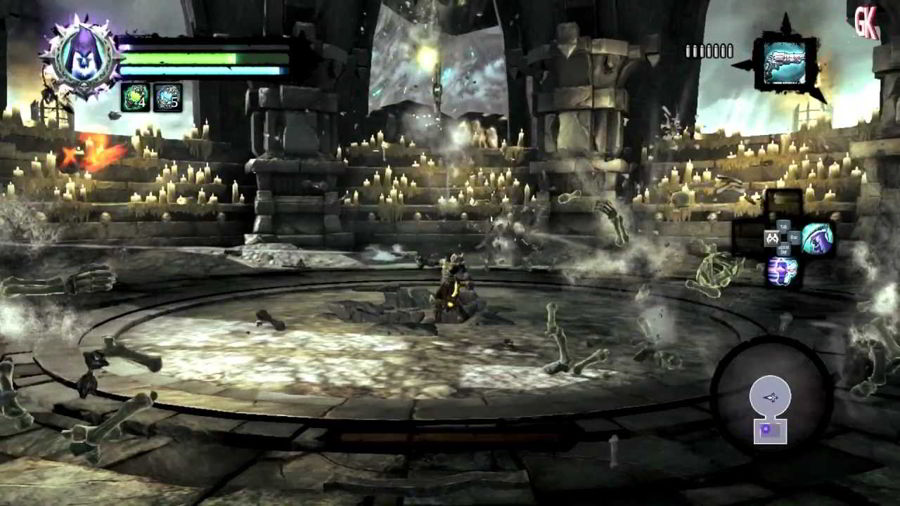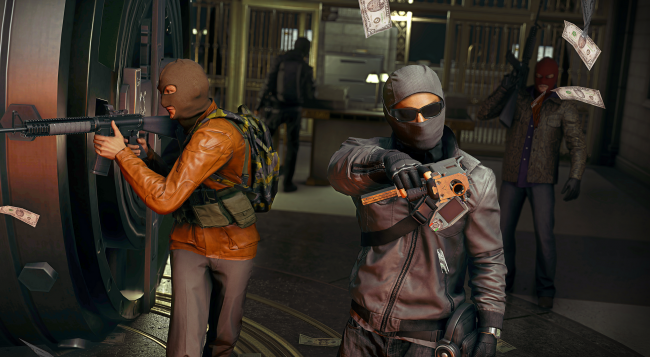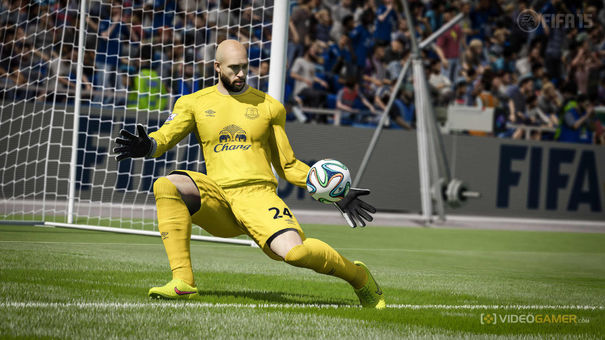

As the game opens, the already Assassin-trained Fryes have decided to leave behind their less-than-exciting home town of Crawley, feeling that their talents are wasted. With sights set on breaking the Templar oppression of London, the twins jump a train and start making their mark on the bustling city, reclaiming the city piece by piece for its citizens.
The twins themselves are one of the best additions to Syndicate. From the very beginning, their differing approaches are made very clear. Jacob is brash and headstrong with a preference for solving problems with fists and blades, while Evie is a planner who prefers to move stealthily and unseen. Likewise, Jacob’s primary focus is expanding their influence in the city and killing Templars, while Evie is intent to find the Piece of Eden artifacts and explore their history. It’s a smart dichotomy between the two primary factions of Assassin’s Creed players – combat versus stealth, action versus lore. The ability to swap between the twins in the world map at any time – without having to go back to any kind of ‘character swap’ location – means you can always play as your kind of Assassin.
London itself has to be one of the best playgrounds that the Creed franchise has given us to date. The city is huge and sprawling, with environments much more spread-out compared to last year’s Unity. This is done to accommodate the city’s heavy cart traffic and industrial leanings. While Paris always felt busy and bustling, the narrow streets of Unity made the density more of a hassle than anything else, as pushing through crowd after crowd made staying on the ground level feel like a waste of time. Here, there are plenty of people out and about in the city, but there’s still breathing room to move and navigate around them with ease.
Moving across rooftops also has a new element to it in Syndicate – with the wider spread of buildings in London, it’s not so easy for the Fryes to jump from building to building. After a few story missions of dealing with this unassisted, you’re introduced to the rope launcher to help in your traversal. Essentially a grappling gun, the launcher allows you to ascend the city’s much higher buildings with ease and quickly cross wider gaps between structures. It takes a little while to get used to the range and allowable angles for the rope launcher because it’s not as free-form as, say, Just Cause 2’s grappling gun.
To use the launcher you must be either standing on a level platform or perch, and cannot launch from a climbing position. Movement can be a bit slow if you are crossing between buildings at an angle that doesn’t allow gravity to push you downwards, flying-fox style. It’s a handy traversal mechanic but at times lacks the zippy quality that would make movement across the massive city of London truly seamless.
As you’d expect from past Assassin’s titles, there is plenty to do in Syndicate. On top of the core story missions, split between those for Jacob and those for Evie, there are plenty of side mission sets, diversions and collection activities. Races, fist-fighting arenas and Unity-style incidental encounters such as bullies or thieves litter the world of Syndicate, with fights in particular a good point of access to some easy cash as you start out.
You’ll also find side mission chains revolving around famous Victorian-era people such as Charles Dickens, Karl Marx Alexander Graham Bell and Queen Victoria herself as you explore the city, each with their own goals and self-referential nods to their respective parts to play in history. Bell is focused on establishing his telephone network, Karl Marx is espousing his Communist Manifesto and Darwin is having very polite but passionate arguments over his Origin of the Species. Add to this missions revolving around characters added as part of the game’s story, the usual collections of collectibles to track down, loot chests to open and mysterious tombs to unlock, and you’ve got a very busy map to explore.
All this, and I haven’t even gotten into gang wars. At the centre of the story and mechanics of Assassin’s Creed: Syndicate is the turf war between the Frye twins’ newly formed gang, the Rooks, and the existing gang that has a stranglehold on London. Each borough of the city is broken up into sections, with each having a specific gang war activity to undertake to free that portion. Ranging from rescuing child workers to stealing cargo, hunting down particular targets or infiltrating strongholds, there’s plenty of variety as you dismantle the Templars’ hold on London. Liberate every part of a borough and you’re free to challenge the leader of the area and fully take it over. Doing so not only lets you punch and stab a bunch of guys (and girls!) to prove how great you are, but lowers the enemy numbers in that zone to allow you easier travel from A to B.
It’s a familiar mechanic in the series, but having it rooted in gangs – or, one could say, syndicates – really makes it feel natural. As you move around town, you’ll see members of the Rooks and the red-jacketed Blighters coming to blows in the streets, really making the turf war intrinsic instead of something that merely happens when you step onto the right map marker. On that note, combat feels a bit more intuitive and complex than previous instalments. It’s not at Batman: Arkham levels, but combat does feel more tactical rather than button-mashy which is a step in the right direction. With counter-attacks, blocks, gunfire and bombs to deal with, you’ll need to think before you leap rather than just spamming attacks to make it through.
Environmentally, London is a tad drab. Full of smog, coal and generally greyish people, there are still highlights of colour in the world. The stark comparison of the monochrome world helps them to pop, such as the bright reads and greens of the gang members or signs and advertisements littering the walls of buildings. The soundscape of the city is excellent; Syndicate‘s world is really brought to life through an aggressively fun soundtrack.
Rather than the series’ usual composer Jesper Kyd, Austin Wintory (Journey) has taken the reins for Syndicate. The Frye twins aren’t afraid of the occasional tussle, and the soundtrack reflects this. Combat music is energetic rather than intimidating, and Wintory has made reference to the fact that waltz music is a big part of the formula. To the twins, a fight is nothing more than a dance; both Fryes toy with their opponents because they know that they’ll win. The noise of the city folds into this well, with the bustle of people and carriages supplanted by the heavy bass of industrial machinery.
Syndicate‘s biggest take-away is just how much fun the Fryes are to spend time with. Jacob and Evie are diametrically opposed in their approaches to the Assassin life, but their family bond ties them together well. The interplay and sibling banter makes their interactions more than just a vehicle for story infodumps, and gives the narrative more flavour than some previous protagonists have been capable of. All in all, the game feels like a proper step up from last year’s sanctuary for bugs, Assassin’s Creed: Unity.
With the game’s surprisingly small day-one patch installed, I‘ve only had one bug of any note and it wasn’t even that big of a deal — Evie got stuck in a doorway and everyone spent the cutscene talking to the spot where she should have been. Whether this is due to more thorough QA in response to Unity, from lessons learned working in current-gen or because Ubisoft Quebec took the lead on Syndicate is unclear. Nevertheless, it adds up to a more stable play experience — and that’s all that matters. Assassin’s Creed: Syndicate gives us a more immersive and fun-oriented Creed outing and is definitely worth a look, even if its previous instalment gave you some cause for concern.
Assassin’s Creed: Syndicate was reviewed using a promotional code on PS4, as provided by the publisher.




 Metal Gear Solid 5: The Phantom Pain Episode 14 – Lingua Franca
Metal Gear Solid 5: The Phantom Pain Episode 14 – Lingua Franca Walkthrough Pathologic Classic HD
Walkthrough Pathologic Classic HD Battlefield: Hardline Review Impressions
Battlefield: Hardline Review Impressions REVEALED! The 8 shocking truths about your favourite games that you will not believe
REVEALED! The 8 shocking truths about your favourite games that you will not believe FIFA 15: How EA Sports got its tactics wrong
FIFA 15: How EA Sports got its tactics wrong